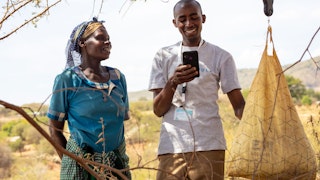Investment Profile
Women’s World Banking Capital Partners II LP
Jump Links
Women’s World Banking invests in female-focused financial services companies in emerging markets, investing in providers that prioritize low-income women clients, gender diversity within their team and management, and innovative solutions to enhance customer reach and engagement.
Investment size:
$5M
Type
Fund
Geography
Global
Date
2020



